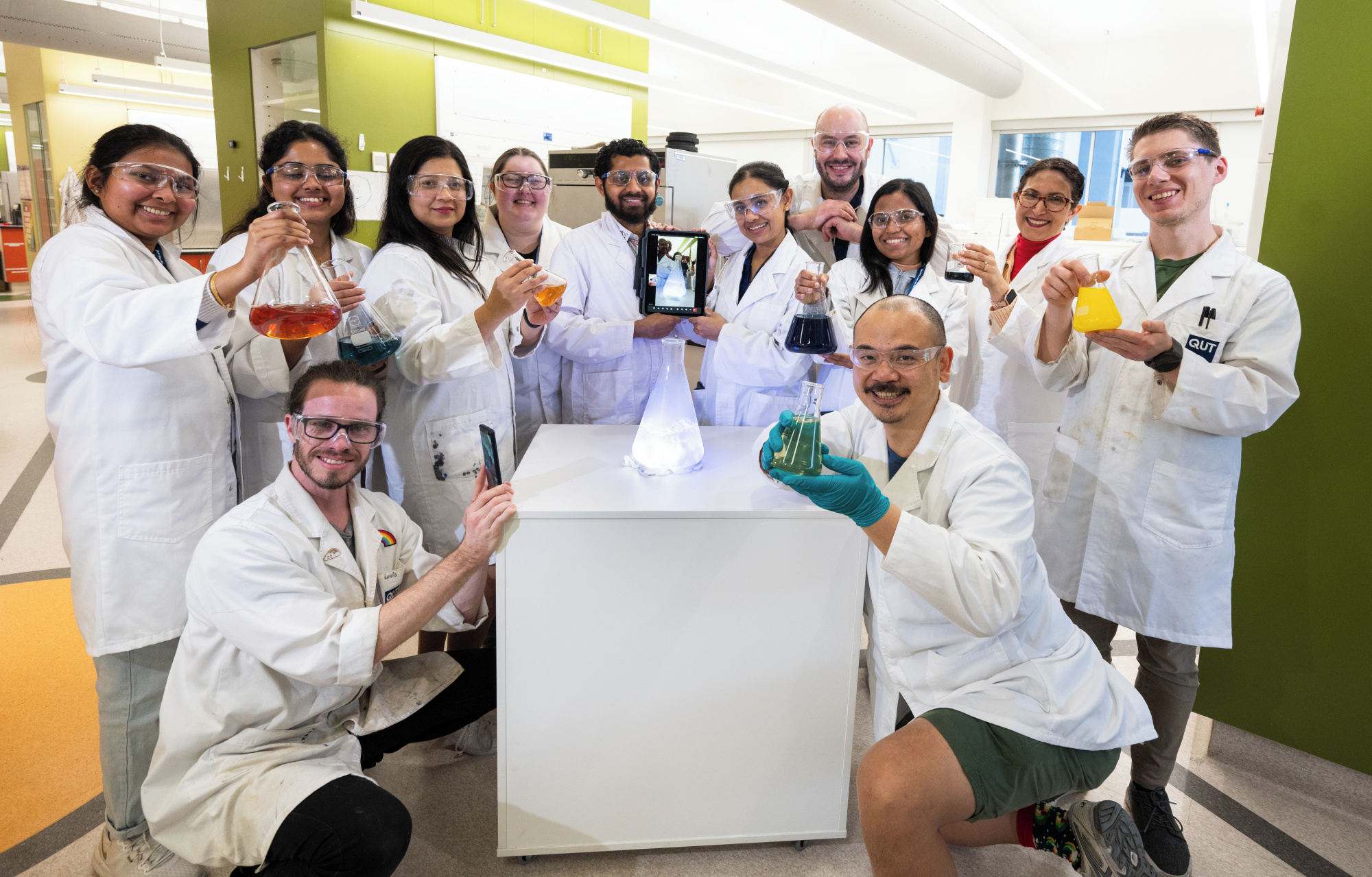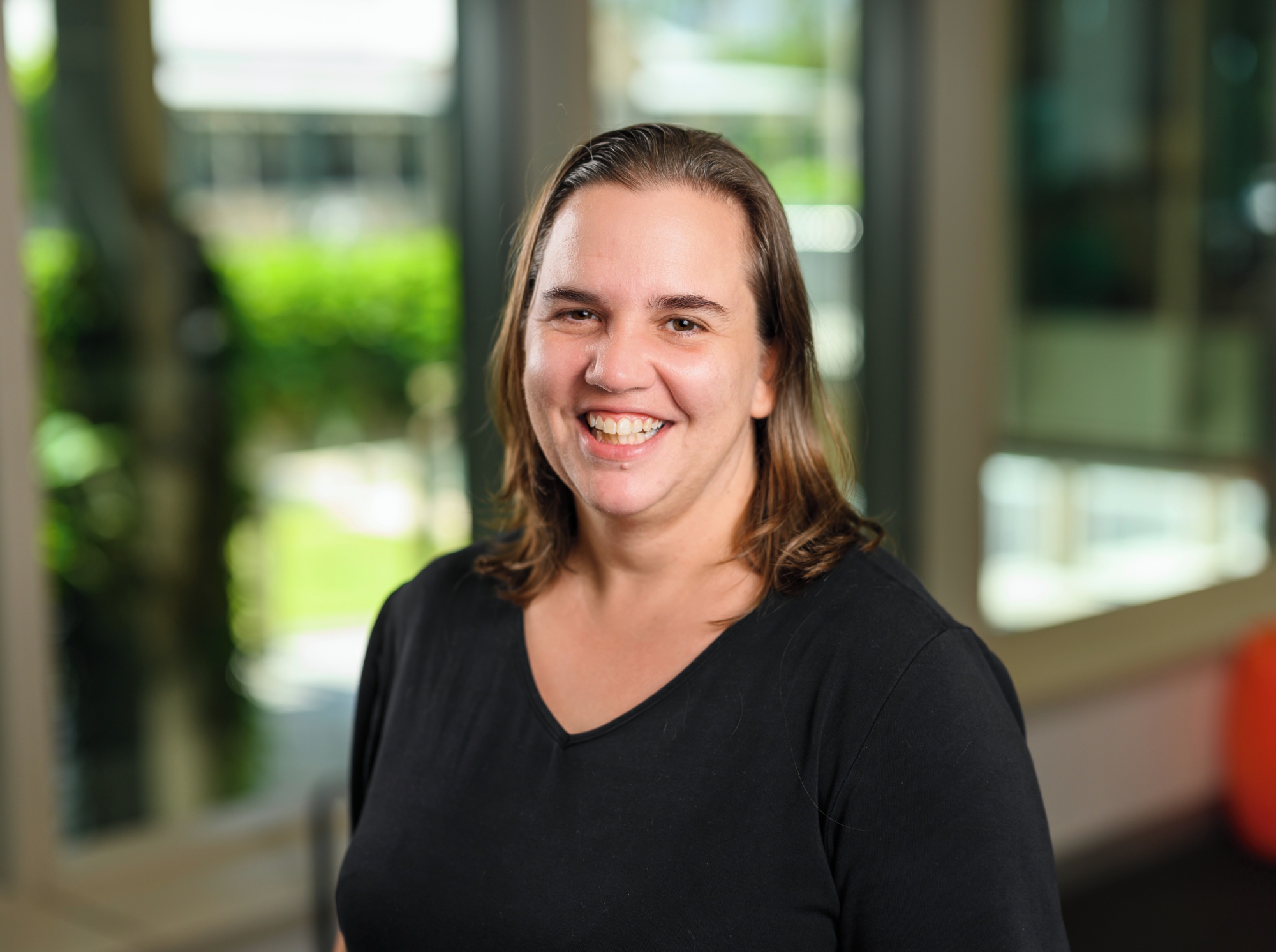A QUT science outreach program that streams live lab experiments into primary school classrooms has received a funding boost from corporate and government sectors to take it to more regional schools.
Zoomed-in Science was started by QUT scientists and a Brisbane school teacher and is run by the QUT Faculty of Science and Centre for Materials Science.
The concept was born during the COVID lockdowns, with the program streaming its first free sessions into classrooms around south-east Queensland last year.
This year it is stretching its virtual wings and taking the QUT scientists into schools as far as Blackwater in central Queensland, and even Tasmania.
The Queensland Government recently awarded the program a $20,000 Engaging Science Grant, which comes on top of a $5000 community grant from Origin and a $5000 sponsorship from Boeing.
It has also received funding from scientific instruments company Shimadzu and the Central Highlands Regional Council.
Zoomed-in Science is delivered by an enthusiastic team of PhD students, lecturers and postdoctoral researchers, who do live experiments and present curriculum-relevant science and answer questions from their young audiences.

QUT chemist and researcher Dr Michael Pfrunder and his wife, Caitlin Pfrunder, who is a Brisbane primary school teacher, came up with the concept during the COVID lockdowns when schools ramped up their use of streaming technology.
Dr Pfrunder said the sessions were delivered via iPads, smart phones and the Teams virtual meeting app used by Queensland state schools.
"It's enabled us to reach schools in regional and remote areas where it would be difficult to take an outreach program in person," he said.
"This year it's really exciting to be taking Zoomed-in Science as far as places like Blackwater and Windorah.
"Kids in remote areas don't always get the same opportunities to participate in science events as kids in bigger cities. But brilliant scientists can be born anywhere, so it's important to fire up their imagination and interest at a young age."

Program co-coordinator Dr Kathleen Mullen, from the Centre for Materials Science, said the sessions targeted kids in Prep to Year 6 – a crucial age group where gender stereotypes were already forming but hadn't fully kicked in.
"Primary schools often get forgotten about by science engagement programs – people tend to target high schools," Dr Mullen said.
"But it's these younger ages where they develop quite a lot of ideas about identities, and roles in society and people's jobs – including who can be a scientist and what a scientist looks like.
"If you ask a group of young children to each draw a scientist, you'll probably get a lot of pictures of men in lab coats. But we want to show them that anyone can be a scientist in the real world. We want to excite them and engage with them, before they develop strong stereotypes."
Zoomed-in Science was originally trialed in Ms Pfrunder's classroom at Jindalee State School.
She helped ensure it was developed to support the chemistry-based 'matter' units in the Australian primary school science curriculum – and accommodate the busy schedule of teachers. She's also continued to be a teacher-consultant for the ongoing program.
"As teachers, we're so busy during the day that any extra activity needs to be easy to use and conducive to ongoing learning in the classroom," Ms Pfrunder said.
"We developed Zoomed-in Science with this perspective in mind and the result is a program that makes teachers jobs easier rather than adding to their workload."
So far this year, the Zoomed-in Science team has delivered 30 sessions at eight schools, in places including Tara, Miles and Condamine in the western Darling Downs, Goondiwindi, and even Tasmania.
In Semester 2, they are taking a virtual road trip to six more regional primary schools, including Blackwater North (800km from the scientists' home base at QUT Gardens Point in Brisbane) and Windorah (1200km away).
Primary school teachers interested in bringing Zoomed-In Science to their schools can visit the QUT website






